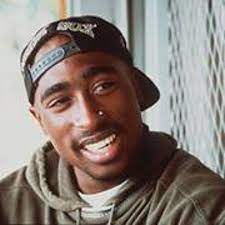On June 16, 1971, Lesane Parish Crooks gave birth to the G.O.A.T. His mother, Alice Faye Walker (Afeni Shakur), changed his name to Tupac Amaru Shakur a few days later on June 29, 1971, making him the third well-known person to bear the name Tupac Amaru. In order to protect their son from being persecuted by the enemies of his Black Panther-affiliated family, Tupac’s father Billy Garland gave him the name Lesane Parish Crooks.
Regarding Tupac himself and the position he took in society, a lot can be said. In addition to being a poet, he was also a rebel and an activist, using his gift to express his beliefs. A person’s name can reveal a lot about them, and that rings particularly true.
He was born during a difficult time in American history, and there is no doubt that the legend surrounding his birth is fascinating. In 1968, Tupac’s mother Afeni and her first husband Lumbumba Shakur were detained in Harlem on charges of plotting to attack important New York City monuments. Since they belonged to the revolutionary “Black Panther Party,” their bail was set at $100,000. All twenty were charged with conspiratorial activities and were placed under arrest. The group made the decision to start raising money for Afeni’s bail so that, after she was outside, she could focus on releasing the others.
Afeni conceived her son, William Garland, a truck driver from New Jersey, while she was being held without bond. Her son was born on June 16, 1971.
Five Presbyterian and Episcopal churches, along with four ministers, contributed the funds for the 22-year-old Afeni. They stated that they made the bail available for Mrs. Shakur after Black Panther Party officials selected her.
On June 16, 1971, Tupac Shakur was born, going by Lesane Parish Crooks. Afeni formally changed his name to Tupac Amaru Shakur, which translates to “shining serpent” in Inca, when he was just one year old. ” “I wanted him to understand that he wasn’t simply from a neighborhood but also a part of a global culture. In an interview, she stated, “I wanted him to have the name of revolutionary, indigenous people in the world,” expressing her conviction that names have a unique meaning. She was referring to two revolutionaries who had a significant impact on indigenous history. Among those with this name were the final Inca king and the rebel from Peru who spearheaded the biggest insurrection of native people in history. In hindsight, changing Tupac’s name was the appropriate move. Like his forebears, he publicly denounced societal injustice. He participated in “Thug Life,” and a significant portion of his discography deals with political action.



